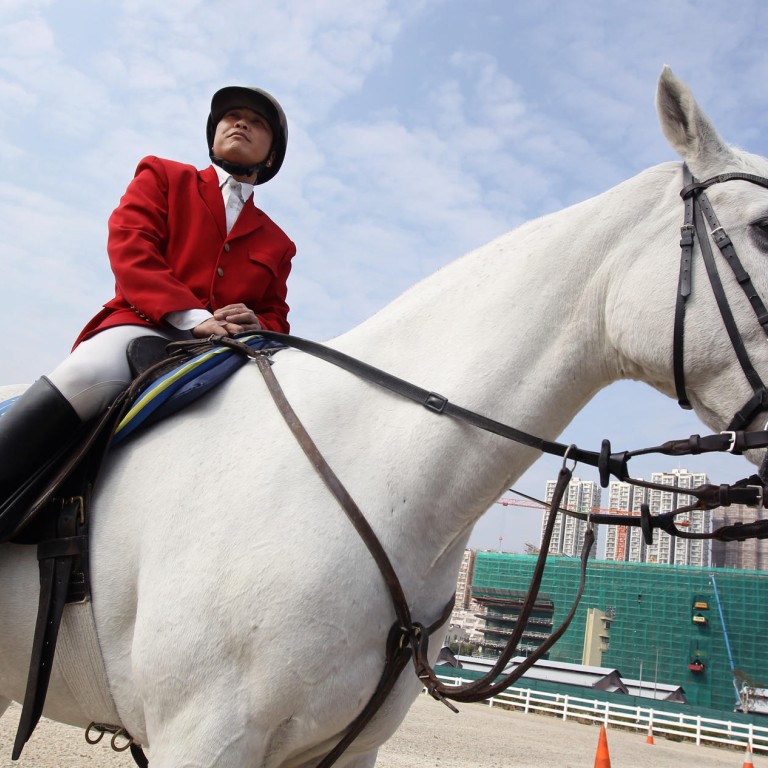
A horse of the year for the Year of the Horse
Just as runners sometimes jump the gun, so do racehorses, especially when surrounded by thousands of excited spectators. Which is why old hands are on hand to calm them down before they enter the starting gate.
Just as runners sometimes jump the gun, so do racehorses, especially when surrounded by thousands of excited spectators.
Which is why old hands are on hand to calm them down before they enter the starting gate.
Lead horses, as they are called, were introduced to the city in 1978. There are now 13.
Nineteen-year-old Ah Jock, a grey who came over from Australia in 1999, is the old boy on the block and the only horse in the team that has never raced.
At an age equivalent to 57 in human terms, Ah Jock is semiretired and works only three hours a day at Sha Tin, starting at 5.30am.
"Horses are much like dogs; both are loyal and smart. The only difference is you can't keep a horse at home," says Ah Jock's rider, Wong Chi-ming. "He knows if you're a friend or not."
The pair have been inseparable since Wong brought Ah Jock from Australia after being trained to be a lead horse rider.
"Like humans, horses like to live in groups, so just seeing and hearing the lead horse comforts the racehorse as it approaches the starting gate," Wong says.
Lead horses are also responsible for stopping a horse when it jumps the gun, and Wong marvels at the horses' sixth sense.
He recalls once when Ah Jock suddenly tensed up while staring at the starting line, just before a horse smashed the gate and ran off. "Before I realised, Ah Jock was chasing that runaway horse," Wong says.
Wong managed to grab the reins of the frightened horse and guide it back.
There are three to four lead horses in the parade ring during a race meeting. Older horses with a gentle character are best for the job, and retired racehorses normally need time to adapt to life off the track before undergoing training, which takes up to a year.
All lead horses are male, as female horses tend to be more bad-tempered, Wong explains. "Also, most racehorses are male, and things can get out of control when males who have not been castrated see a female," he adds.
